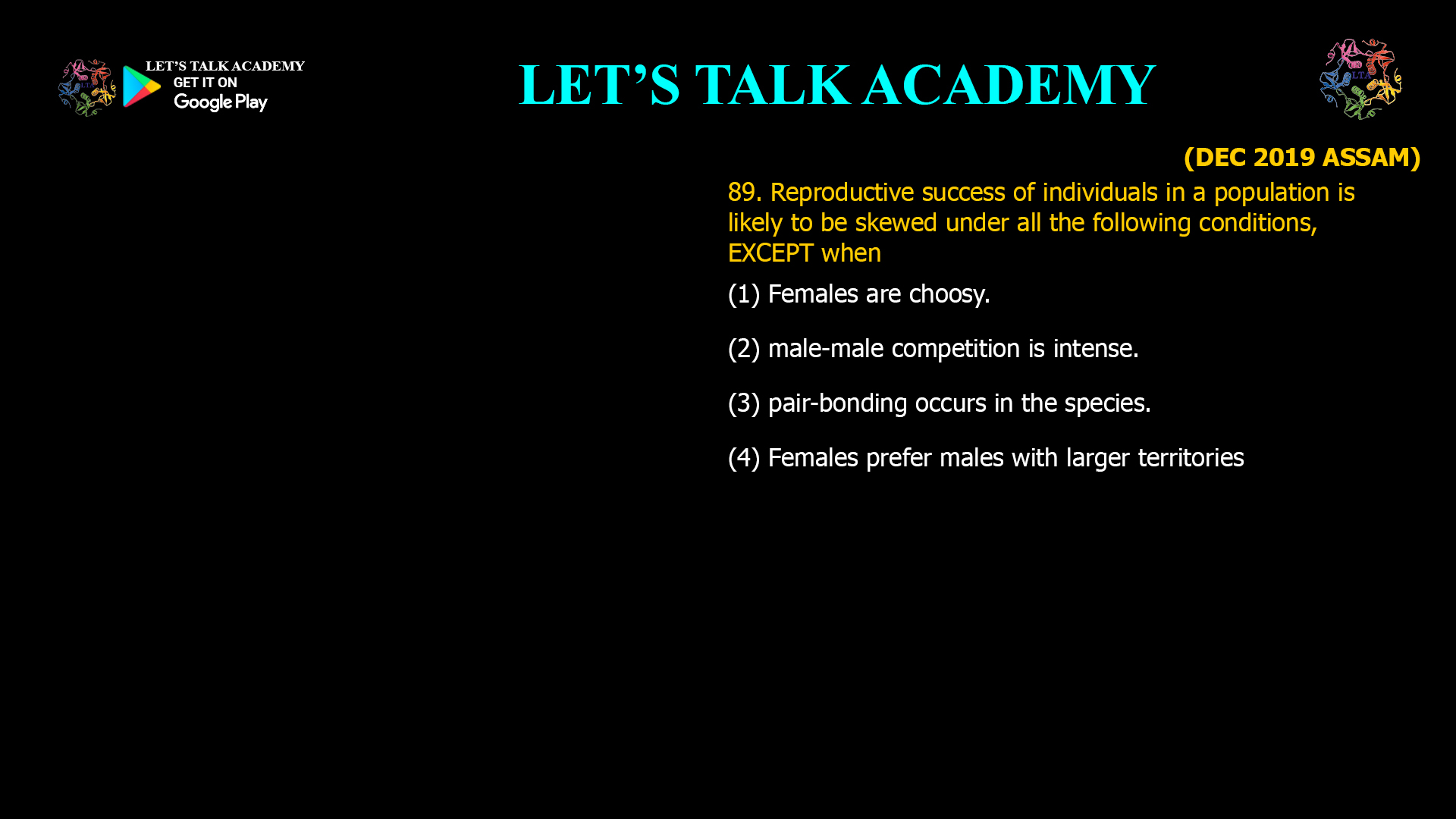- Reproductive success of individuals in a population is likely to be skewed under all the following conditions, EXCEPT when
(1) Females are choosy.
(2) male-male competition is intense.
(3) pair-bonding occurs in the species.
(4) Females prefer males with larger territoriesWhat Causes Skewed Reproductive Success?
Reproductive skew arises when certain individuals monopolize access to mates or resources, often due to:
-
Female Choosiness: When females are selective, only a subset of males (those with preferred traits) achieve high reproductive success, while others may not reproduce at all.
-
Intense Male-Male Competition: In species where males compete aggressively for mates or territories, dominant individuals can secure most matings, leaving others with little or no reproductive output.
-
Female Preference for Large Territories: When females prefer males with larger or better territories, those males gain a disproportionate share of matings, further skewing reproductive success.
The Exception: Pair-Bonding
Pair-bonding—where individuals form stable, often monogamous, partnerships—creates a system where reproductive opportunities are more evenly distributed. In these species:
-
Most individuals form pairs and have a roughly equal chance to reproduce.
-
Social norms or ecological constraints limit the ability of one individual to monopolize mates or resources.
-
Reproductive output is less variable among individuals, leading to lower reproductive skew.
Scientific Evidence
Studies in both human and nonhuman mammals show that monogamous or pair-bonded systems are associated with lower reproductive skew compared to polygynous or competitive systems. In such populations, the variance in reproductive success is minimized, and most adults contribute similarly to the next generation.
Why Not the Other Conditions?
-
Female Choosiness: Increases reproductive skew, as only preferred males reproduce.
-
Intense Male-Male Competition: Leads to a few dominant males monopolizing reproduction.
-
Female Preference for Large Territories: Skews success toward males with the best territories.
Conclusion
Reproductive success is least likely to be skewed in populations where pair-bonding occurs. Such systems promote more equal reproductive opportunities, reducing the dominance of a few individuals and supporting a more balanced contribution to future generations. This pattern highlights the profound impact of social structure and mating systems on the distribution of reproductive success in animal populations
-




1 Comment
Kajal
October 13, 2025Pair bonding occur